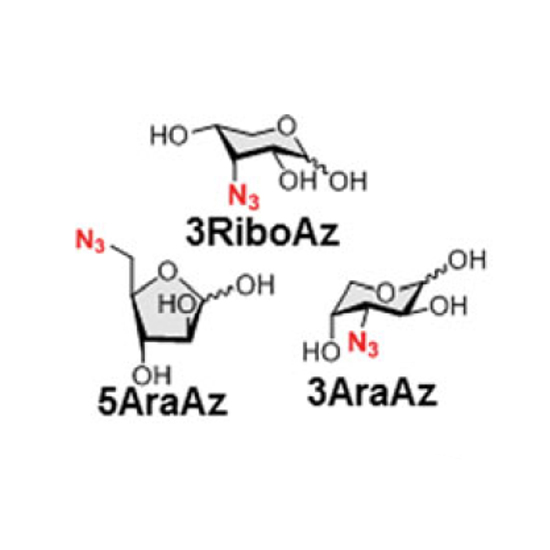Azido Pentoses: A New Tool To Efficiently Label Mycobacterium tuberculosis Clinical Isolates
29-Mar-2017
ChemBioChem, Volume 18, Issue 13, Pages 1172–1176 , DOI: 10.1002/cbic.201600706
ChemBioChem, online article
Mycobacterium tuberculosis (Mtb), the main causative agent of tuberculosis (Tb), has a complex cell envelope which forms an efficient barrier to antibiotics, thus contributing to the challenges of anti-tuberculosis therapy. However, the unique Mtb cell wall can be considered an advantage and be utilized to selectively label Mtb bacteria. Here we introduce three azido pentoses as new compounds for metabolic labeling of Mtb: 3-azido arabinose (3AraAz), 3-azido ribose (3RiboAz), and 5-azido arabinofuranose (5AraAz). 5AraAz demonstrated the highest level of Mtb labeling and was efficiently incorporated into the Mtb cell wall. All three azido pentoses can be easily used to label a variety of Mtb clinical isolates without influencing Mtb-dependent phagosomal maturation arrest in infection studies with human macrophages. Thus, this metabolic labeling method offers the opportunity to attach desired molecules to the surface of Mtb bacteria in order to facilitate investigation of the varying virulence characteristics of different Mtb clinical isolates, which influence the outcome of a Tb infection.











